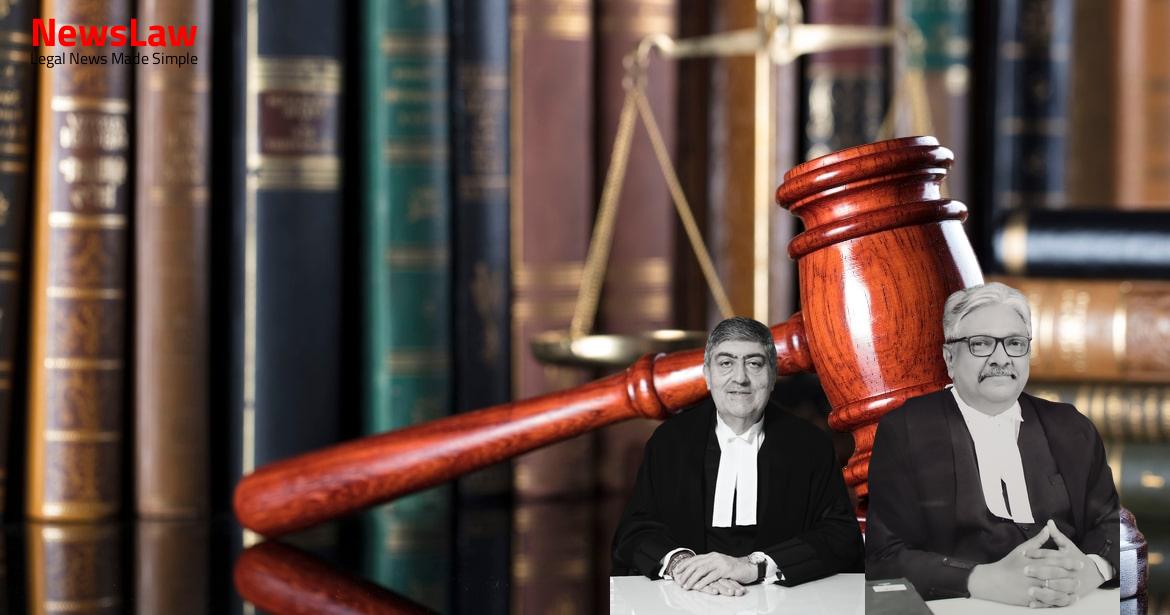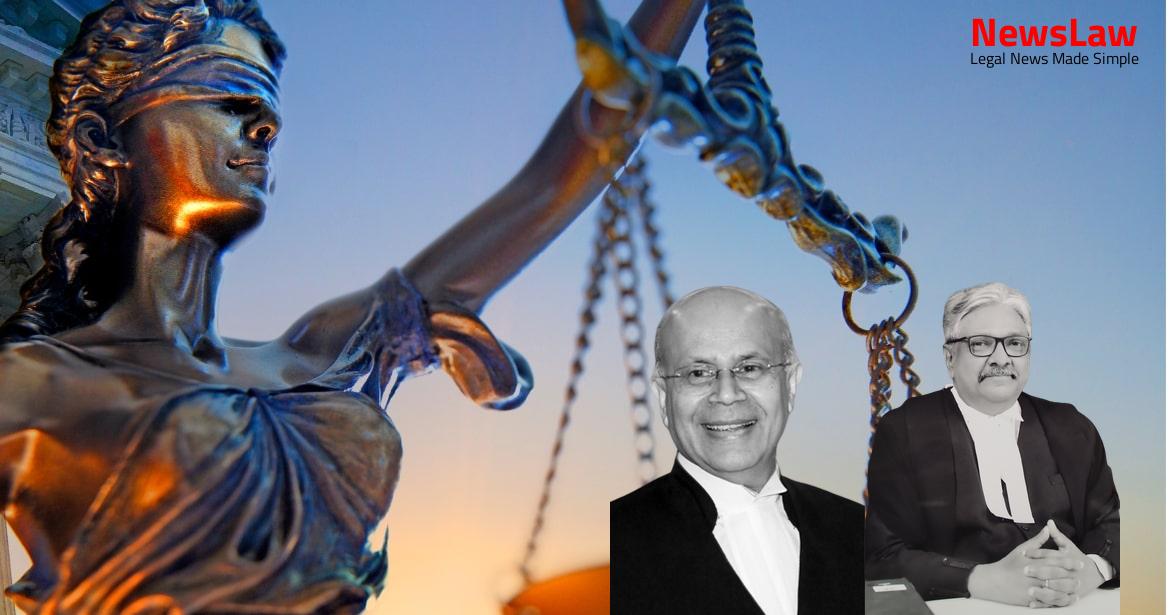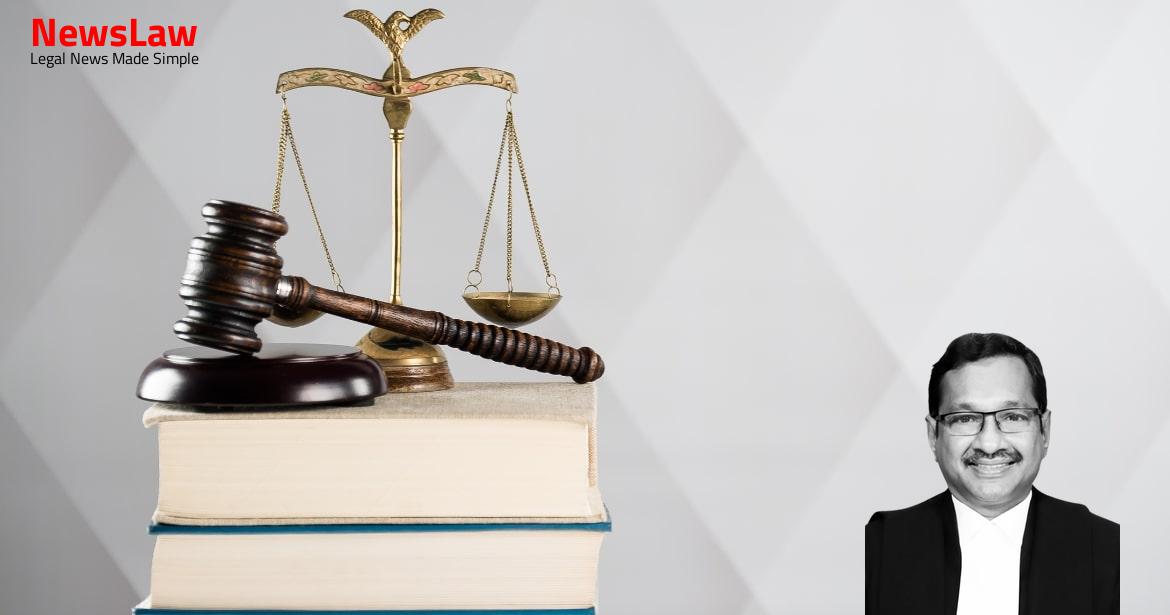The Supreme Court has issued a landmark judgment in the Soral Family Property Partition Dispute, resolving the long-standing legal battle between the appellants and the respondents. The case originated from a dispute over the partition of properties left by their ancestor, Late Rameshwar Nath Soral. The Court’s decision brings much-needed closure to the contentious issue of property division among the family members. #LegalDispute #FamilyLaw #SupremeCourt
Facts
- Present appeal against judgment passed by High Court in S.B. Civil First Appeal No. 170 of 2009 where the judgment and decree of Trial Court was upheld.
- Dispute between parties regarding partition of properties left by Late Rameshwar Nath Soral, their ancestor who died on 28.01.1996.
- Appellants raised argument against High Court judgment stating that Valuer failed to assess the value of roof rights in the valuation report dated 08.08.2008.
- Appellant No.1 was held entitled to Portion-A on ground floor with a valuation of ₹7,13,098/-
- Appellant No.2/Asha Soral was also held entitled to the same amount for Portion-A
- Approved Valuer appointed for valuation of properties submitted report for Plot No.5, Professor Colony, Nayapura, Kota
- High Court decided three appeals including S.B. Civil Regular First Appeal No.309 of 2001 which was dismissed as infructuous
- Appellants disputing partition proceedings only with reference to roof rights of Plot No.5, Professor Colony, Nayapura, Kota
- The issue raised in the present appeal is solely regarding partition of the property, not other matters like gold jewelry or silver items
Also Read: State of U.P. and Anr. v. Sanjay Kumar and Another
Arguments
- The appellants have been given additional rights on the ground floor.
- The respondents have been given rights on the roof.
- The appellants’ concerns are being viewed as exaggerated.
- The Trial Court and the High Court thoroughly examined the issue.
- Property valuation by an approved Valuer was crucial in determining the parties’ shares.
Also Read: Case Summary: Legal Battle Between Appellants and Respondents
Analysis
- The proposal for partition was agreed upon by the parties in principle and the properties were partitioned accordingly.
- Additional rights were granted to specific legal heirs, with two receiving shares on the ground floor and two receiving roof rights on the first floor.
- Revaluing the properties for a new partition would lead to prolonged litigation and is not deemed appropriate, as the rights and shares of the parties were already determined by the Trial Court and upheld by the High Court.
- The case was deemed suitable for resolution through alternate means like mediation and conciliation given the bitterness among the legal heirs regarding property partition.
- Certain objections were raised regarding property valuation, but they were rejected by the Court.
- The legal heirs did not contribute to the acquisition or construction of the properties, making the litigation a matter of greed rather than necessity.
- After valuation by an approved Valuer and the passing of the preliminary decree, the Trial Court determined the portions of the property coming to the share of the four parties.
- Disputes relating to partition/division among family members/coparceners/co-owners should be settled through ADR processes.
- This applies to cases of strained or soured relationships within families.
- Alternative Dispute Resolution (ADR) processes are preferred for cases involving family disputes like matrimonial causes, maintenance, and custody of children.
Also Read: T.R. Vijayaraman and B. Kanagarajan v. C.B.I. and Indian Bank
Decision
- Courts are required to explore methods for amicable settlement of family disputes
- No merit found in the present appeal
- Appeal is dismissed
- No order as to costs
Case Title: MAHENDRA NATH SORAL Vs. RAVINDRA NATH SORAL (2024 INSC 372)
Case Number: C.A. No.-001980-001980 – 2024



